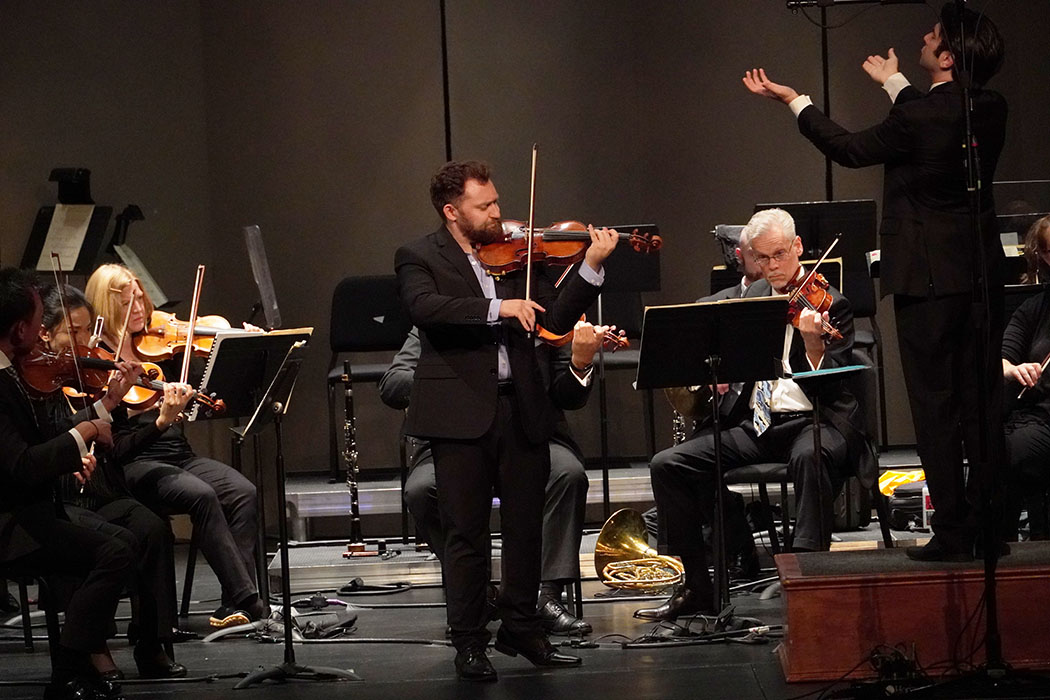It would be nice if we could pretend that the past weekend was a normal one for classical music in Knoxville. The fact is, there was nothing normal about it. Knoxville was treated to an unusual happening—two world-class concertmasters, each performing in solo roles in major concertos with separate orchestras, and in separate venues. On Saturday evening, Frank Huang, the concertmaster of the New York Philharmonic, performed the Sibelius Violin Concerto as guest soloist with the University of Tennessee Symphony Orchestra. Then, on Sunday afternoon at the Bijou Theatre, William Shaub, the concertmaster of the Knoxville Symphony Orchestra, joined Maestro Aram Demirjian and the orchestra as soloist in Mozart’s Violin Concerto No. 5 in A Major, K. 219. I believe this to be the first performance of this concerto by the KSO in at least the last 20 years.

Recently, Shaub spent four weeks of his summer as guest concertmaster with the New Zealand Symphony Orchestra on tours in Wellington, Auckland, and Christchurch. Clearly, though, the stint down under wasn’t a distraction in Shaub preparing for the Mozart with the KSO. Sunday’s performance by Shaub was masterful in both technical agility and sheer entertainment value. His handling of the Adagio was a beautiful example of recognizing the composer’s “complex simplicity,” that disguises its difficulty and sophistication with innocence.
Although the concerto has been nicknamed “Turkish,” the reality is that the closing Rondo movement has Hungarian folk dance music to thank for its jaunty style. Shaub, Demirjian, and orchestra embraced this “Turkish style” with confident relish and exuberance.
The afternoon began with BLINK, a work for orchestra and multimedia commissioned by the KSO from local composer and performer Jorge Variego. Inspired by the synchronous firefly occurrence in the Great Smoky Mountains National Park, this impressive work is accompanied by a video intended to support and amplify the composer’s delightfully colorful and textural score.
The second half of the concert was devoted to the first orchestral work by Dame Ethel Smyth, the Serenade in D Major, first heard in 1889. Largely ignored by music history until recently, Smyth was an important force in the British suffrage movement. Thankfully, appreciation for this interesting character and notable composer has grown, frankly due to the programming interest of orchestras like the KSO who have sought to correct the past gender discrimination and offer some degree of prominence.
Although called a Serenade, the work is quite symphonic in the dramatic impact of its length and thematic construction. Absent a true slow movement, the work depends on playfulness and spirit, a quality that Demirjian and the orchestra wove into a musical cloth of strength sans heaviness—a perfect recipe for an afternoon revelation.





